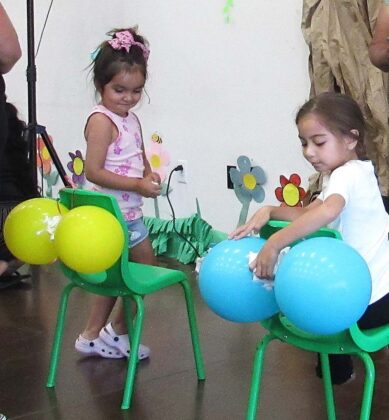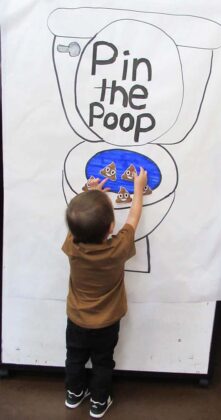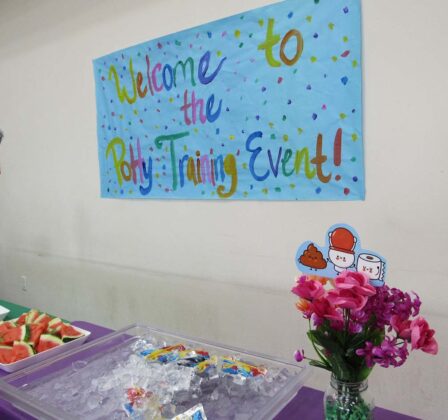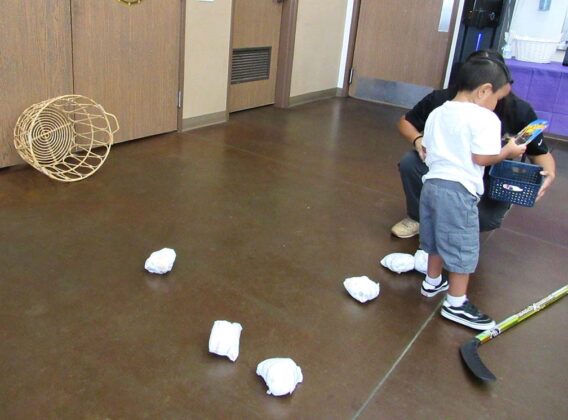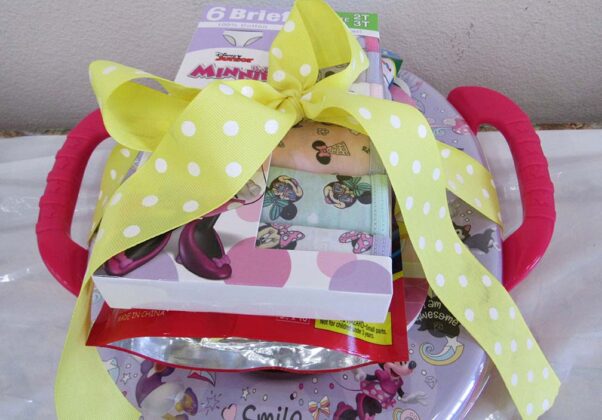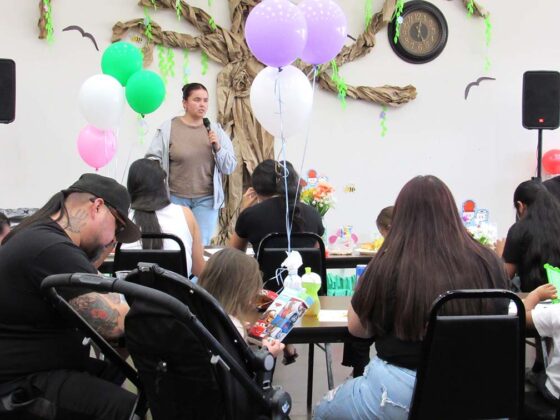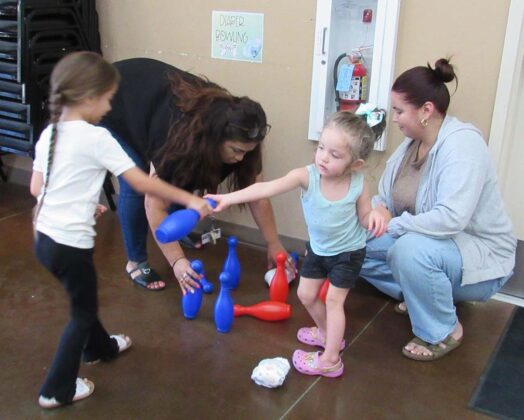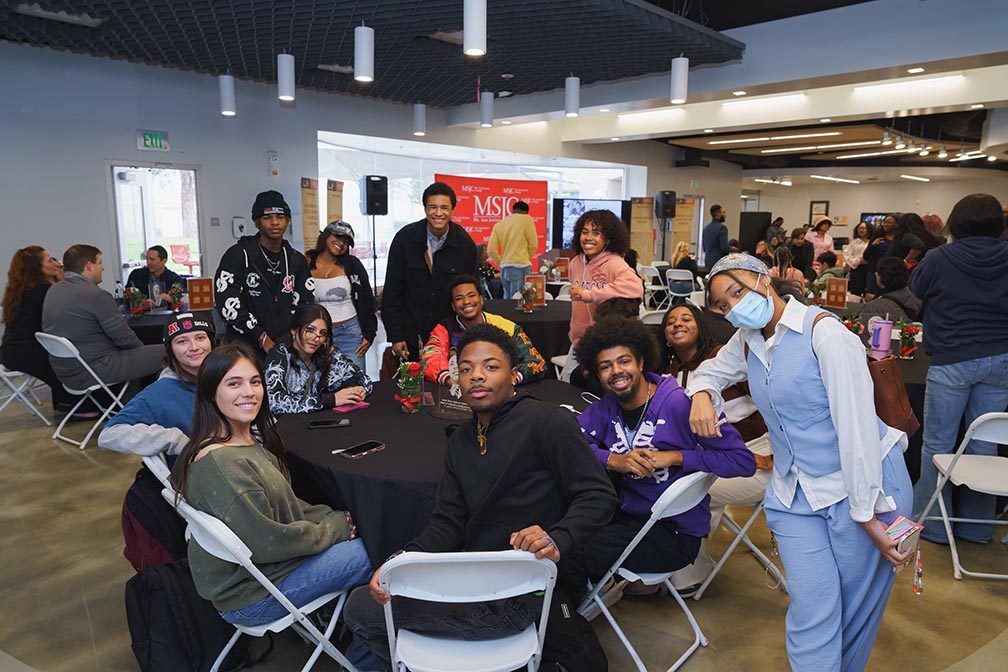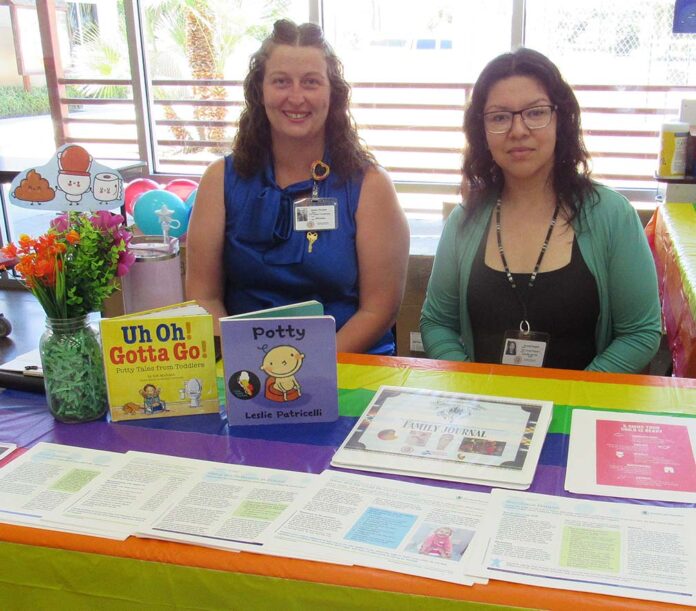
Soboba Band of Luiseño Indians
Special to Valley News
Tribal Family Partners teamed up with the Soboba Tribal Preschool staff and teachers to offer a Potty Training Event for young families on July 24. Held at the multipurpose room adjacent to the preschool, tips, resources and tools were available to all who attended with their young children.
TFP Project Coordinator Jessica Plumlee and Parent Partner I Amanda Nogales shared a table of informational handouts for families and then did a short presentation that highlighted the most important goals of what they refer to as “potty learning.”
Plumlee said there are several steps to accomplish before children are considered ready, emphasizing that just as children walk at different ages, they also develop the skills for using the toilet at different ages. It is important to support the child’s attempts at learning at their own speed, although the ideal age to introduce them to this process is typically two-and-a-half years.
The five signs that a child is ready start with communication—understanding when they have to go, either through words or facial expressions. Next is comfort as a child will ask to be changed or let you know when they are in a wet or dirty diaper. Interest plays a key role as the child starts paying more attention to the toddler potty chair, grown-up toilet, or asks about bathroom habits.
Further, they need to be independent enough to pull their pants up and down without assistance and sit and stand without support. They need to be able to get on and off the seat with ease, whether they use a free-standing toddler-size training potty chair or an adjustable seat and step stool for a full-size toilet. Another sign of readiness is when their diaper stays dry for at least two hours at a time during the day.
Even after they are fully trained, accidents will happen and bedwetting is not uncommon until the age of seven, because children sometimes sleep too deeply to wake up.
“Be calm and patient,” Plumlee said. “Remember that cognitive, motor and social skills all need to be at the same developmental levels.”
Nogales offered some helpful tips and tricks. She said families need to decide and be consistent with the language that is used to explain when their child needs to use the toilet. Sometimes sign language is used and that can be helpful for children who are not verbal.
“You are their first role model and teacher,” she said. “Get them involved in the bathroom.”
She said letting the child pick out the stickers they want to use for their potty training chart is also a good incentive.
To enroll at the preschool, children have to be at least three years old as of September 2 and be toilet-trained. That’s why Nogales said it is a good idea to ask their teacher what the school routine is like so they can start getting them ready at home.
“Potty learning doesn’t have to be stressful,” she said. “It’s really important to praise your children and realize this is a new concept for them, so talking it through with them is very helpful.”
As children start to become independent, they want to have more control, so it’s important to avoid power struggles by keeping things as stress-free as possible. There are many books, songs, and short videos on the subject that can be shared with them to help them understand.
Children also need to be taught proper hygiene, which led to one of the games that was set up. A balloon wiping game lets kids have fun while learning about the importance of wiping after using the toilet. Two inflated balloons filled with shaving cream between them were tied to the back of a chair and the children had to reach around with toilet paper to try and wipe it clean.
There were plenty of other fun games and activities to keep kids busy with help from all the teachers. Pin the Poop in the toilet was popular among all ages as many of the kids had older siblings joining them at the event. A few games used rolled-up disposable diapers in a variety of ways – as a hockey puck, a bowling ball, and a basketball. Prizes just for trying included stickers and small toys. There was a table with coloring pages and crafts.
Not all the games were for the kids, as adults were given a chance to play a few rounds of Bingo, facilitated by Pre-K Instructional Aide Alaina Adkins. Preschool Administrator Lenora “Ponie” Mojado pointed out that every spring the preschool holds a community Bingo night to raise funds for an end-of-the-year trip to Legoland. The success of this event has been invaluable to the preschool program, and they look forward to promoting it whenever possible.
Bingo and raffle prizes were on theme as pint-sized soft toilet seats and character underwear were bundled together for lucky recipients to start using when the time is right. Some school backpacks filled with potty training tools, books, and school items were donated by Tribal Family Partners.
A delicious lunch was prepared by Tribal Chef Anita Morillo and her team and there was plenty of fresh fruit, sandwiches, and pasta for everyone to enjoy.
Families were then treated to a tour of the preschool to see what was in store for children who were starting there when the new school year began on Aug. 5.
Tribal Family Partners offers many free programs to support Native families with children 0-5. They offer biweekly home visits, parent/child activities, early child development education, family wellbeing, cultural events, resource connections, and development screenings, all at no cost. TFP is a grant-funded program that has served Native families in Riverside and San Bernardino counties for the past 11 years. To learn more, please call 951-849-4761, ext. 1136.
For more information about the Soboba Tribal Preschool, call 951-487-8732 or visit https://preschool.soboba-nsn.gov.


